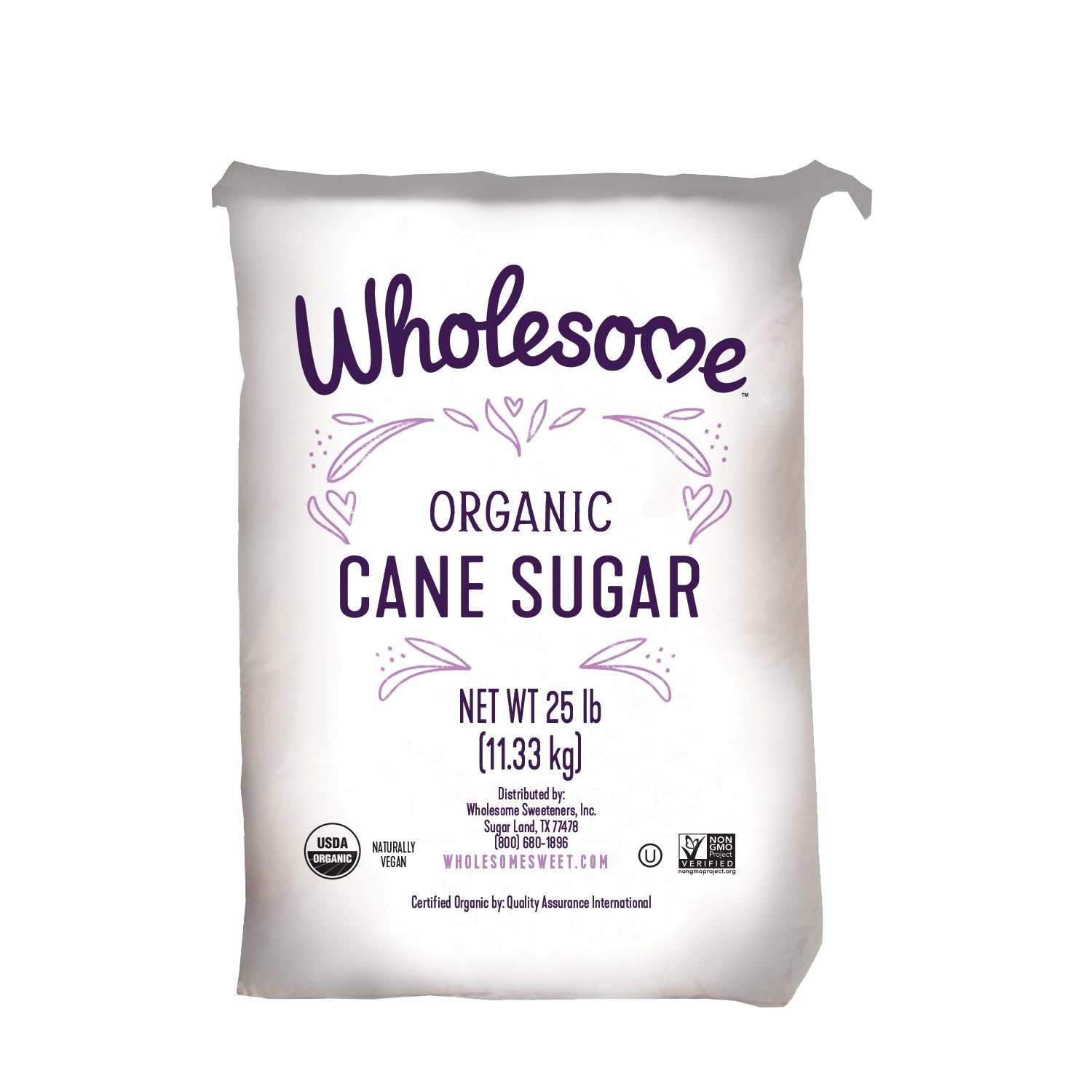Cane Sugar Processing: Traditional Techniques and Modern Innovations
An In-depth Overview of the Health and Economic Effects of Walking Cane Sugar Processing on Neighborhood Areas
Walking cane sugar processing plays an essential function in forming the economic landscape of local communities, supplying work possibilities and stimulating supplementary industries. The wellness ramifications linked with high sugar intake can not be forgotten, as they add to rising rates of weight problems and diabetes mellitus.
Financial Advantages of Walking Cane Sugar Handling
Walking cane sugar processing supplies considerable financial advantages that prolong past the prompt agricultural market. The growing and processing of sugarcane develop many task opportunities, from farming to production and circulation. This employment generation not only supports local economic situations but also cultivates community growth by offering secure earnings resources for family members.
Moreover, the sugar sector boosts secondary services, including transportation, tools supply, and product packaging solutions (Cane Sugar Processing). As these fields expand, they add to a much more durable economic structure, enhancing general community strength. The export possibility of refined cane sugar further amplifies economic benefits, positioning regions as affordable gamers in global markets
Financial investment in contemporary handling facilities can bring about boosted productivity and effectiveness, consequently lowering waste and optimizing resource usage. This change not just benefits the local economic situation yet also supports sustainability efforts by lessening ecological influences.
Furthermore, the income produced from cane sugar handling can be reinvested in regional facilities, education and learning, and medical care, advertising holistic area development. Overall, the economic benefits of walking cane sugar handling are complex, giving a structure for sustaining prosperity in farming areas.
Health Threats Related To Sugar Usage
Excessive sugar consumption presents considerable health and wellness dangers that necessitate major interest. High intake of sugarcoated, especially from processed foods and beverages, has actually been linked to various health problems. One of the most pressing concerns is obesity, as sweet diet regimens add to an enhanced calorie intake without offering necessary nutrients. This extra can result in metabolic conditions, consisting of type 2 diabetes, which has actually become progressively common in both adults and kids - Cane Sugar Processing.
Furthermore, high sugar intake is connected with cardio condition. Elevated blood sugar level levels can bring about insulin resistance, a forerunner to various heart-related problems. In addition, sugar can have damaging impacts on dental health and wellness, causing cavities and periodontal condition, as bacteria in the mouth prosper on sugar, producing acids that erode tooth enamel.
Additionally, emerging study recommends a prospective web link between high sugar usage and mental health and wellness conditions, such as depression and stress and anxiety. As neighborhoods face these wellness threats, it ends up being necessary to promote understanding and motivate healthier nutritional choices. Attending to sugar intake is vital not only for individual health and wellness however additionally for the total health of regional areas, highlighting the demand for comprehensive public health methods.
Ecological Influences of Sugar Manufacturing
Regularly ignored in conversations concerning sugar's effects is the substantial environmental influence of sugar production. The cultivation of sugarcane commonly demands extensive land use, leading to deforestation, loss of biodiversity, and interruption of regional environments. The conversion of woodlands and wetlands into sugar vineyards can lead to habitat destruction, threatening many types and altering ecological equilibrium.
Moreover, sugar production is resource-intensive, consuming substantial amounts of water for watering. This can bring about deficiency of local water sources, negatively affecting both farming methods and neighborhood access to clean water. In addition, using chemical fertilizers and chemicals in sugarcane farming can add to dirt degradation and water contamination, as drainage from these chemicals enters neighboring rivers and lakes, affecting aquatic life and human wellness.
The environmental footprint encompasses the handling phase, where energy usage and waste generation more exacerbate environmental problems. Air air pollution from shedding sugarcane areas, in addition to greenhouse gas exhausts, add to environment adjustment. Thus, the ecological implications of sugar production warrant significant factor to consider, advising stakeholders to adopt more lasting techniques to reduce these damaging results on regional environments and areas.
Job Creation and Neighborhood Advancement
The environmental challenges posed by sugar manufacturing are often counteracted by its capacity for financial advantages, specifically in work development and neighborhood growth. The walking stick sugar market offers as a significant resource of employment in lots of backwoods, offering work across various skill levels, from agricultural labor to processing and distribution functions. This employment not just sustains individual family members but also adds to the total economic vitality of regional areas.
Additionally, the facility of sugar processing centers boosts secondary companies, such as transportation solutions, equipment supply, and maintenance service providers. As these services thrive, they develop additional jobs and strengthen neighborhood economic climates. The profits produced from the sugar market additionally causes boosted tax obligation Look At This incomes, which can be reinvested right into area solutions such as facilities, education and learning, and health care advancement.
Additionally, the sugar industry frequently involves in neighborhood development campaigns, such as supporting local institutions and wellness programs, thereby boosting the high quality of life for residents. By promoting solid area ties and advertising economic growth, the cane sugar handling sector plays a crucial role in uplifting regional populations, making it an important part of sustainable advancement strategies in sugar-producing areas.
Harmonizing Health and Economic Development
In navigating the intricacies of walking stick sugar handling, a critical challenge depends on stabilizing wellness considerations with financial growth. The sugar sector substantially adds to local economic climates by generating jobs, stimulating associated fields, and enhancing tax obligation revenues. However, the health effects associated with excessive sugar usage can result in persistent diseases such as obesity, diabetes mellitus, and cardio concerns, which can burden public health systems and reduce labor force productivity.

Moreover, governing structures can play a pivotal function in assisting market techniques towards more sustainable and health-conscious methods. By cultivating cooperation in between government bodies, health companies, and the sugar market, neighborhoods can browse the discover here duality of health and wellness and financial development, making certain that the advantages of cane sugar processing are equitably shared while prioritizing public health and wellness.
Verdict
To conclude, the processing like this of cane sugar presents both significant economic advantages and notable health risks for local neighborhoods. While it promotes task creation and promotes regional advancement, the involved health issues, especially pertaining to excessive weight and diabetes mellitus, demand a mindful balancing act. By advertising liable usage and investing in community education and learning and lasting methods, it is possible to maximize financial advantages while decreasing negative health and wellness effects, thereby guaranteeing a healthier future for neighborhood populations.
Additionally, sugar can have detrimental effects on dental health and wellness, resulting in cavities and gum condition, as germs in the mouth thrive on sugar, producing acids that deteriorate tooth enamel.
Dealing with sugar usage is essential not just for private health and wellness yet likewise for the overall well-being of local neighborhoods, emphasizing the requirement for comprehensive public health strategies.
Regularly ignored in discussions about sugar's implications is the considerable environmental impact of sugar production. The health effects linked with too much sugar usage can lead to chronic diseases such as excessive weight, diabetic issues, and cardio issues, which can worry public wellness systems and decrease workforce efficiency.
